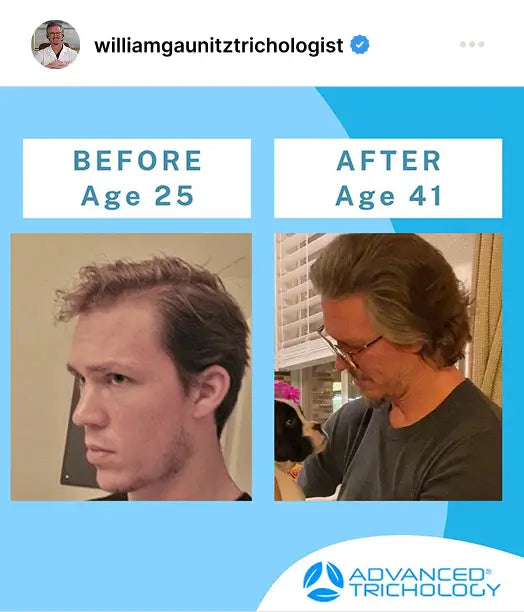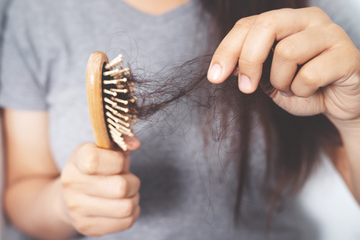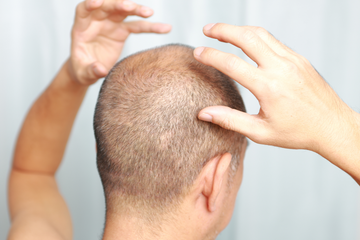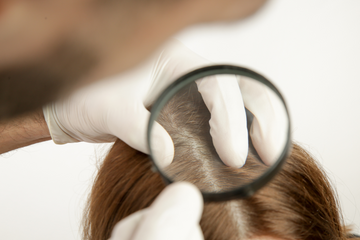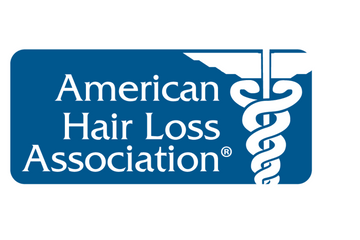Hair loss is defined as a reduction in overall hair volume over time. At any given time 10% of our hair is in the resting phase and 3 to 5% of our hair would be in the exogen phase, otherwise known as the shedding phase.
Under normal circumstances, hair will regrow completely after resting.
However, there are instances where the hair will grow back smaller and finer or with an overall lesser number of individual hairs, or not at all.
Advanced Trichology founder and certified trichologist William Gaunitz, FWTS, says when you notice areas of general thinning, particularly through the part line of the middle of the head or in the temple region or crown region, it’s time to take your hair loss seriously.
Gaunitz identified three core reasons for hair loss:
- Hormonal-related hair loss otherwise known as Androgenetic Alopecia or male and female pattern hair loss. Although these have multiple names, they are all caused by the same scenario. It is a genetic sensitivity to dihydrotestosterone at a given point in one’s life or at a specific hormonal level. Once the sensitivity is triggered it is not possible to go back.
- Nutritional hair loss is otherwise known as nutritional alopecia. Nutritional hair loss is a general thinning of the overall volume of hair particularly on the scalp but can also influence eyebrows and facial hair due to a reduction in the overall bioavailability of key nutrients needed to grow hair to its fullest potential. Those nutrients are vitamin D3, ferritin, iron, zinc, B12, and folate. In my opinion, this is actually the most widespread reason for hair loss as well as the most widespread reason for most hair loss treatments not working when this cause is not addressed.
- Inflammatory hair loss is the most diverse group related to different types of hair loss. This includes Alopecia Areata, which can progress to Alopecia Totalis or Universalis. This also includes telogen effluvium, a stress-related shed that is typically the reason for Covid-related hair loss, as well as a wide variety of scarring alopecia’s that are caused by inflammation from an autoimmune disorder. Unfortunately, scarring alopecia’s are not reversible and have a variety of names including lichen planopilaris, folliculitis, frontal fibrosing alopecia, and CCCA.
Learn more on InStyle, and visit www.AdvancedTrichology.com to take our quiz to receive a bespoke hair regrowth plan.

